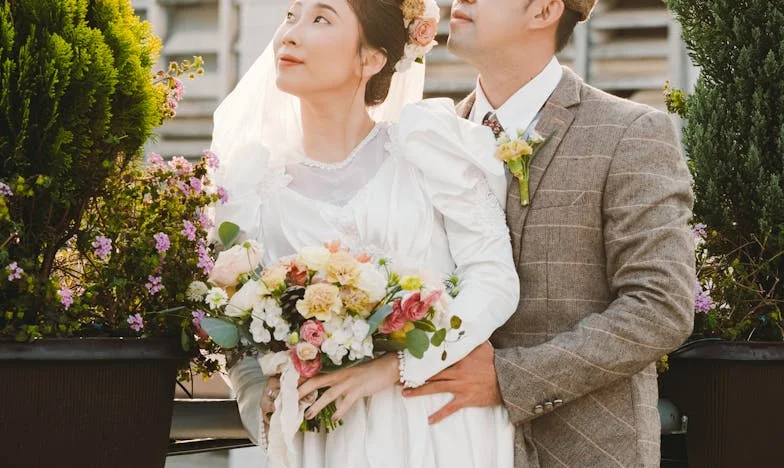Beneath the Surface: The Story of a Noble Betrayal
“You can’t just walk away, Claire!” Ethan’s voice shook as he shoved the crumpled sheet music across our kitchen table. Rain battered the windows, echoing the storm inside me. I gripped my mug tighter, feeling the ceramic heat seep into my palms, desperate for something steady. My eyes darted to the front door, to my packed suitcase, to the shadow of a future I never meant to choose.
“I don’t know what else to do,” I whispered, blinking back tears. “I can’t keep pretending everything’s fine.”
We met twelve years ago in a crowded dorm hallway at the University of Michigan. Ethan was that quiet, awkward kid with hair too long for the Midwest and a battered guitar slung over his shoulder. He wrote poetry in a notebook with coffee stains, and when he smiled, the world seemed a little less sharp. I was the overachiever—Political Science major, student government, always on the move. But Ethan made me pause. He waited for me after class, always pretending it was a coincidence. “Claire, you ever hear a song that feels like it’s written just for you?”
He played me one of his own songs in a freezing parking lot after a snowstorm. My fingers were numb, but my heart was warm for the first time in years. My parents—hardworking, blue-collar folks from Grand Rapids—didn’t quite understand him. My mom would sigh and whisper, “He’s sweet, Claire, but is he stable?” My dad just grunted and turned up the TV when Ethan came to dinner.
We moved in together after graduation, scraping by in a tiny Ann Arbor apartment. I worked two jobs—bartending and tutoring high school kids—while Ethan gigged at open mics and took shifts at a record store. When I got accepted to law school in Chicago, Ethan followed me. He said he’d do anything, go anywhere, as long as we were together.
His music never quite took off. I watched him fade, day by day, into someone I barely recognized. The boy who wrote me love songs now spent nights staring at blinking laptop screens, scrolling through rejection emails. I tried to be supportive. “You’ll get there, Ethan. I believe in you.” But sometimes, my words felt empty, even to me.
Two years into marriage, things began to unravel. Ethan withdrew, spending hours at the café down the street. He’d come home smelling of espresso and cheap cologne, his eyes red-rimmed. I asked if something was wrong, but he’d just shake his head and say, “Everything’s fine.”
One night, my phone buzzed as I was reviewing case files. A message from an unknown number: “You don’t know half of it. Ask Ethan who he’s with tonight.” My stomach dropped. I tried to ignore it, but doubt wormed its way in. That Friday, I followed Ethan after dinner. I watched from across the street as he hugged a woman outside the café, her hand lingering on his cheek. I felt the world tilt under my feet.
When I confronted him, he broke down. “It’s not what you think,” he pleaded. “Her name’s Rachel, she’s just a friend from the music scene—she gets it, she listens, that’s all.”
But the lies kept unraveling. I found receipts for hotels, late-night texts, stories that didn’t add up. My parents urged me to leave. “You deserve better,” my mother cried. But part of me clung to hope, to the memory of the boy who wrote me songs in the snow.
We tried counseling. We tried forgiveness. We tried pretending. But each attempt felt like patching a dam with tissue paper. I grew cold, resentful. I buried myself in work. Ethan grew bitter, accusing me of never really understanding him, of caring more about my career than our life together.
One night, after another fight, I found myself driving aimlessly through Chicago’s empty streets. I called my best friend, Jess. “I feel like everything I believed in was a lie,” I sobbed. “Was any of it real?”
She was quiet for a long time. “You loved him, Claire. That was real. But sometimes love isn’t enough to fix someone, or to save yourself.”
That hit harder than anything Ethan ever said.
So here I am, standing in a kitchen full of memories and broken promises, suitcase by the door, Ethan’s face pale and desperate. The rain hasn’t let up. Maybe it never will.
“Please, Claire, I can change. I’ll do anything,” he begs, voice cracking. For a moment, I almost believe him. But I know now: love doesn’t mean losing yourself, no matter how noble the illusion.
As I walk out the door, I wonder: How do you forgive someone who betrayed not just your trust, but the very story you built your life around? And when the world finally strips away our illusions, who are we really left with?
